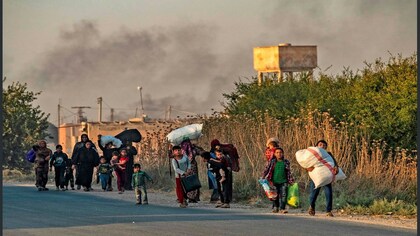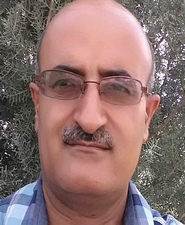Iran's Latin American Presence a Menace
14:37 - 8 November 2011

One step the United States and its allies could pursue would send a strong message to Tehran and at the same time have a tangible impact on U.S. security: Press allies to restrict the size of Iranian missions to the minimum needed to conduct official business. Over the past few years, Iran has vastly expanded its presence in South and Central America, opening new missions and populating them with far more people than required for normal diplomatic duties.
Consider the finding of Argentine officials investigating the 1994 bombing of the AMIA Jewish community center in Buenos Aires by Hezbollah operatives working in tandem with Iranian intelligence agents. Argentine intelligence discovered that prior to his posting in Buenos Aires, Iranian Ambassador Hadi Soleimanpour served as charge d\'affaires and then Ambassador in Spain from 1985 to 1989. \"During this period,\" investigators determined, \"Soleimanpour was instructed by the Iranian government to take charge of the collaboration of a group of five residents of Spain with a view to providing Pasdaran (IRGC) with support in the event a reprisal action was carried out against the U.S. and Israel.\" He engaged in similar activities in Argentina, according to prosecutors.
A few weeks after the 1994 AMIA bombing, the State Department\'s coordinator for counterterrorism expressed concern that Iranian embassies in the region were stacked with larger than necessary numbers of diplomats, some of whom were believed to be intelligence agents and terrorist operatives: \"We are sharing information in our possession with other States about Iranian diplomats, Iranian terrorist leaders who are posing as diplomats, so that nations will refuse to give them accreditation, or if they are already accredited, to expel them. We have had some success in that respect, but we have not always succeeded.\"
Amazingly, Iran\'s intelligence penetration of South America has expanded significantly since the AMIA bombing.
Five years later, the commander of U.S. Southern Command indicated the Iranian presence in the region had grown still larger by expanding the number of embassies in the region from just a handful to 12 missions by 2010. Taken together with other developments, such as the now regular flights between Tehran and Caracas, Venezuela, which law enforcement officials have taken to calling \"Aero Terror,\" Iran\'s increased presence in the southern half of the Western Hemisphere presents a clear and present danger to U.S. security.
According to press reports, the Quds Force plot to murder the Saudi ambassador may have also included plans to target Saudi or Israeli diplomats in Argentina. To execute the attack in Washington, the Quds Force apparently approved a plan to subcontract the attack to someone tied to a Mexican drug cartel.
Now is the time for the United States to galvanize allies and collectively press our friends south of the border to severely restrict the size of Iran\'s diplomatic missions to the minimum needed to conduct official business. Such action is not only an appropriate response to Iran\'s clear disregard for the Vienna Convention and its protections for international diplomats, it would also have an immediate impact on U.S. and regional security.
By Matthew Levitt
Consider the finding of Argentine officials investigating the 1994 bombing of the AMIA Jewish community center in Buenos Aires by Hezbollah operatives working in tandem with Iranian intelligence agents. Argentine intelligence discovered that prior to his posting in Buenos Aires, Iranian Ambassador Hadi Soleimanpour served as charge d\'affaires and then Ambassador in Spain from 1985 to 1989. \"During this period,\" investigators determined, \"Soleimanpour was instructed by the Iranian government to take charge of the collaboration of a group of five residents of Spain with a view to providing Pasdaran (IRGC) with support in the event a reprisal action was carried out against the U.S. and Israel.\" He engaged in similar activities in Argentina, according to prosecutors.
A few weeks after the 1994 AMIA bombing, the State Department\'s coordinator for counterterrorism expressed concern that Iranian embassies in the region were stacked with larger than necessary numbers of diplomats, some of whom were believed to be intelligence agents and terrorist operatives: \"We are sharing information in our possession with other States about Iranian diplomats, Iranian terrorist leaders who are posing as diplomats, so that nations will refuse to give them accreditation, or if they are already accredited, to expel them. We have had some success in that respect, but we have not always succeeded.\"
Amazingly, Iran\'s intelligence penetration of South America has expanded significantly since the AMIA bombing.
Five years later, the commander of U.S. Southern Command indicated the Iranian presence in the region had grown still larger by expanding the number of embassies in the region from just a handful to 12 missions by 2010. Taken together with other developments, such as the now regular flights between Tehran and Caracas, Venezuela, which law enforcement officials have taken to calling \"Aero Terror,\" Iran\'s increased presence in the southern half of the Western Hemisphere presents a clear and present danger to U.S. security.
According to press reports, the Quds Force plot to murder the Saudi ambassador may have also included plans to target Saudi or Israeli diplomats in Argentina. To execute the attack in Washington, the Quds Force apparently approved a plan to subcontract the attack to someone tied to a Mexican drug cartel.
Now is the time for the United States to galvanize allies and collectively press our friends south of the border to severely restrict the size of Iran\'s diplomatic missions to the minimum needed to conduct official business. Such action is not only an appropriate response to Iran\'s clear disregard for the Vienna Convention and its protections for international diplomats, it would also have an immediate impact on U.S. and regional security.
By Matthew Levitt



